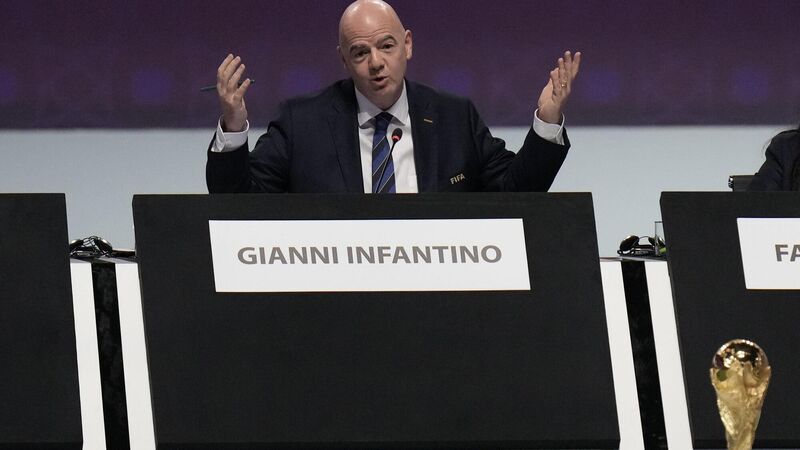Qatar human rights record in focus ahead of Friday's World Cup draw

Fifa President Gianni Infantino speaks during the Fifa congress at the Doha Exhibition and Convention Center in Doha on Thursday. Picture: AP Photo/Hassan Ammar
Qatar's right to stage this year's World Cup has been publicly questioned at Fifa Congress in Doha, with the president of the Norwegian federation saying there was "no room" for hosts who could not legally guarantee the safety of LGBTQI+ people.
Lise Klaveness delivered an impassioned address demanding that Fifa "act as a role model" and ensure that it takes a more ethical approach to selecting hosts in future.











